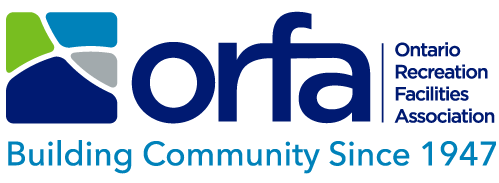- ORFA Home
- Resource Centre
- Technical Corner
- Defining Facility Staff Job Description Titles
Technical Corner
Defining Facility Staff Job Description Titles
August 23, 2023
The recreation sector has a variety of terminology that is used to describe a worker’s responsibilities and skill sets. These titles often have different meaning in each workplace. At times, employers expect staff to assume responsibilities that they may not actually be qualified to perform. Aging staff, high rates of turnover, an increasing regulatory compliance expectation and a swelling complexity of facility equipment makes reaching competency a moving target.
The ORFA discusses the difference between certification and qualification of facility in a recent Technical Corner [more]. A topic that will continue to be explored, analyzed, and applied specific to each workplace. To assist ORFA members in their effort to design internal job descriptions that will help define worker responsibility based on training, accreditation, and proven application of these principles, the following descriptions are considered minimum baseline skill sets.
Facility Operator
A worker who has limited or specific responsibilities. Can assist certified operators in their duties. Should not be directly responsible to supervise other workers.
Certified Facility Technician
A worker who has direct and flexible responsibilities associated with facility operations. The individual has completed a recognized pathway to hold certification. Can assist qualified operators in the supervision and mentoring of other workers.
Qualified Operator
A worker who has a related certification associated with the responsibilities that helps prove that they are qualified to work in a particular skilled portion of facility operations. To obtain a certificate of qualification, individuals are required to have passed their certification exam and have met all requirements to hold such accreditation. Should have no less than 5-years of experience associated with the qualification. Deemed competent to supervise and assist in training or mentoring other workers.
Recreation work environments have an equal balance of risk for the worker and public safety. Employers who clearly define roles and responsibilities of all staff will be well positioned to design short and long-term training objectives that will reflect the commitment of offering safe and serviceable facilities. The ORFA continues to provide leadership in skills development to assist owners and all recreation practitioners.
Comments and/or Questions may be directed to Terry Piche, CRFP, CIT and Director, Training, Research and Development, Ontario Recreation Facilities Association
|
Note: The publisher, (Author(s)/General Editor(s)/Licensor(s)) and every person involved in the creation of this communication shall not be liable for any loss, injury, claim, liability or damage of any kind resulting from the use of or reliance on any information or material contained in this communication. While every effort has been made to ensure the accuracy of the contents of this communication, it is intended for information purposes only. When creating this communication, none of the publisher, the (Author(s)/General Editor(s)/Licensor(s)) or contributors were engaged in rendering legal or other professional advice. This communication should not be considered or relied upon as if it were such advice. If legal advice or expert assistance is required, the services of a competent professional should be sought and retained. The publisher and every person involved in the creation of this communication disclaim all liability in respect of the results of the any actions taken in reliance upon information contained in this communication and for any errors or omissions in the works. They expressly disclaim liability to any user of the work. |
